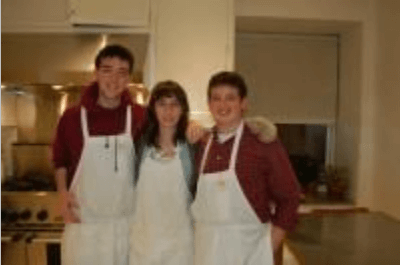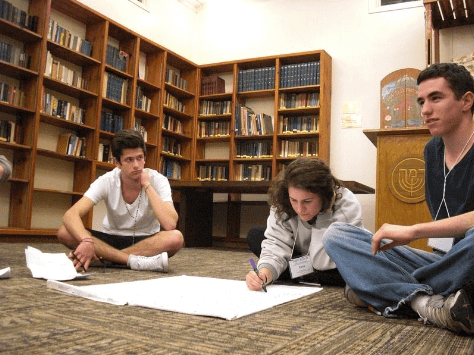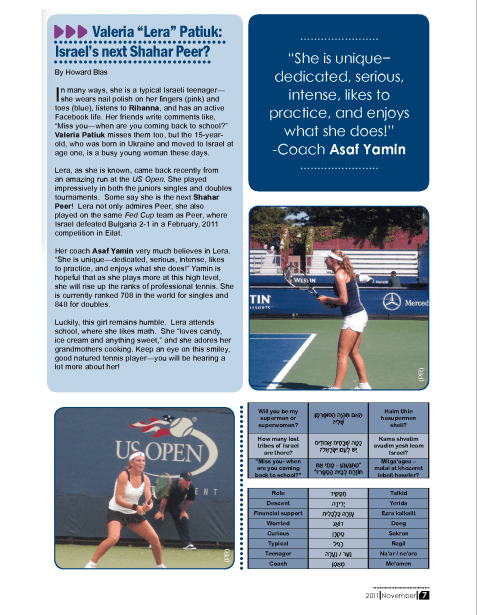Original Article Published On The Jerusalem Post
The annual Kosherfest trade show in New Jersey earlier this month offered a dizzying display of the newest innovations with a stamp of approval
Adam Mintz is the rabbi of the Modern Orthodox Congregation Kehilat Rayim Ahuvim on Manhattan’s Upper West Side and has served as a professor of Jewish history and Jewish thought at various universities. Now Mintz has a new venture. His name and picture appear on the blue bags of Rabbi Mints Classic Kosher Mints. Mintz, along with his wife, Sharon, and a number of friends, dressed in royal blue The Chosen Mint T-shirts, gave out samples of their new product to attendees at Kosherfest 2011 at the Meadowlands Expo Center in Secaucus, New Jersey, earlier this month.
For the past 23 years, owners of food companies, distributors, importers, food processing and equipment companies, chefs, caterers, restaurant owners, kosher certifying agencies, cookbook writers and more have been gathering together for the two-day Kosherfest, the largest trade show featuring kosher food, drinks, wine, food service products and Judaica from around the world. Presentations such as a keynote addresses on “The Kosher Food Industry in 2012 On a Superhighway to New Vistas, an educational session on Mainstreaming Kosher: Taking Ethnic/Specialty Foods to the Masses and Growing Beyond Your Specialty Niche, a panel with chefs and authors entitled Kosher 2012: the New Demands of an Ever-changing Kosher Palate and the fourth Annual Kosherfest Culinary Competition rounded out this year packed Kosherfest schedule.
The attendees, from as far away as Israel, the Philippines and Australia, all know that kosher is big business. According to Lubicon Marketing Consultants, there are an estimated 12,250,000 kosher consumers in the US, and they are part of a $12.5 billion market. While only 1.3 million people in the US identify themselves as Jewish year-round kosher consumers, there are many more people who regularly buy kosher products. More than 3.5 million Muslims and members of other religious groups buy kosher; many vegetarians and people searching for non-dairy products also purchase kosher foods. There are currently 135,000 kosher certified products 3,000 of them became certified in 2010 alone. And 10,650 companies and plants in the country produce kosher food products.
And many of these companies, large and small, old and new, had booths lining the aisles of Kosherfest. New companies like Viktoria’s Gourmet Foods (serving Viki’s Granola), Gelato Shoppe Petrini (more than a dozen flavors of dairy and parve gelato) and Moses Vodka from Finland eagerly handed out samples to visitors.
Such established companies as Streit’s, Manischewitz and Gold’s were also on hand often with larger booths demonstrating how they continue to grow and evolve with the times. Streit’s has been making matza since 1925, when Aron Streit and one of his sons opened up a bakery on Rivington Street in Manhattan’s Lower East Side. Now they have expanded to manufacture such kosher-for-Passover products as chocolate chip cookie mix, sour gummy bears and five versions of Matzel Toff, a toffee chocolate matza treat.
SIMILARLY, Manischewitz continues to innovate and diversify. Alain Bankier, co-president and CEO of the Manischewitz Company, who along with his entire staff was dressed in dark purple Manischewitz button-down shirts, was eager to show visitors the more than 40 new products introduced this year.
Manischewitz traces its beginnings to 1888 when Rabbi Dov Behr Manischewitz opened a small matza bakery in Cincinnati, Ohio. Now, reported Bankier, We strive to be a 52-weeks-a-year company. Manischewitz new products and packaging from organic matzot to gluten-free noodles span such categories as Mediterranean food, comfort food and health and wellness food. And soon, kosher consumers in the New York City area will be able to purchase warm kosher egg rolls, blintzes and knishes from Manischewitz vending machines.
Marc Gold, standing at the Gold’s Horseradish booth, shared the story of how his grandparents, Hyman and Tillie Gold, started making horseradish out of their apartment at 824 Coney Island Avenue in Brooklyn in 1932. My grandmother ground it and my grandfather spooned it into the same basic bottles we use now. He put it on pushcarts but he wouldn’t sell it to people on the streets. He would sell two or three bottles at a time to stores.
Since the market for borscht (beet soup) and schav (sorrel soup) isn’t what it was in the 1930s, the company now manufacturers such modern products as mustard, duck sauce, salsa and wasabi.
A walk down the aisles of Kosherfest revealed an explosion of products geared toward vegetarians, gluten-free needs and the otherwise health-conscious. According to Menachem Lubinsky, founder and co-producer of Kosherfest, Natural, healthy and gluten-free products continue to grow among new kosher product categories, as an estimated 18 million people in the US are sensitive to gluten.
Examples of products available to this demographic include Mon Cuisine Vegetarian Entrees (for example, vegan Hawaiian nuggets with pineapples and sauce or vegetarian Salisbury steak in brown sauce), Sage V Foods IQF Rice (in individually quick-frozen packets) and various meat-free, vegetable protein entrees from Wholesome Cuisine (such as Zesty Cacciatore, and Polynesian Vege Steak Tidbits).
Consumers allergic to dairy or suffering from lactose intolerance will be pleased to see the new line of products from Tofutti, a company started in 1970 when Brooklyn restaurant owner David Mintz discovered tofu as a dairy substitute. The Tofutti Company made an appearance at Kosher-fest as well, demonstrating a new line of desserts, including Tofutti Cuties and Tofutti Dessert Bars as well as parve Pan Crust Pizza, Better Than Cream Cheese and Better Than Ricotta Cheese.
Elokim Herbs demonstrated its healthy alternatives to modern medicine. The Bluebonnet Nutrition Corporation of Sugar Land, Texas, taught about kosher vitamins, herbs and minerals. And Cathy Richards, founder of The Simply Bar, explained that she started her company when she was diagnosed with Crohn’s disease and needed to find a snack that would fill her up but not upset her stomach. Her bars, in seven flavors, are high-protein, low-fat, low-cal, dairy-free, gluten-free, vegan and kosher.
A RECORD number of countries displayed their goods at Kosherfest 2011
Masada Kosher Foods showed off its line of kosher Australian lamb. Tsuno Foods & Rice Co. of Wakayama, Japan, displayed its line of kosher rice oil. Sesameco Sesame Seeds Processing of Quebec demonstrated how tehina is made from sesame seeds. And the Tesalia Springs Company from Pichinichia, Ecuador, gave out samples of natural mineral water and vitamin water to thirsty show-goers.
Other countries in attendance included Israel, Argentina, the Philippines, Finland, Canada, England, Australia, France, Scotland, Brazil, Ecuador, Japan, and the former Soviet Union.
Some countries even received awards for their new products. An Argentinean company, Marumatok SA, won the award for best new wine, beer or spirit (Fincas Marumatok Cabernet Sauvignon Malbec). The impressive delegation from Israel featured large companies like Osem as well as smaller companies like Of To Hod Lavan (deli meats), Kvutzat Yavne (pickles) and Dorot (fresh-frozen herbs). Israel Ashkenazi Chief Rabbi Yona Metzger was on hand for Kosherfest opening ceremony and ribbon cutting and to check out the many products on display at Kosherfest 2011.
Israeli companies received several new product awards including best new frozen entre (Taamati meat-flavor meatless bourekas); best new jam or preserve (Tishbi passionfruit and strawberry champagne preserves); best new dips, spreads, salsas (Sabra guacamole); best new savory and salty snack food (Bamba halva); and best new savory condiment, spice, sauce, oil, vinegar dressing or marinade (Dorot Foods fresh-frozen pesto cubes).
Even novelty items were on display. Rabbi Mendel Jacobs, the only Scottish-born rabbi living in Scotland, has started a company, Jewishtartan.com. The Chabad rabbi, based in Glasgow, sells Official Jewish tartan kilts to be worn at bar mitzvahs and weddings, simchas or social gatherings as well as woolen prayer shawls and matching yarmulkes. Another company, The Kosher Cook, introduced (and received a best new product award for) the Royal Challah Silicone Bakeware Pan.
Culinary Depot claims, Nobody has designed and supplied more kosher kitchens than us and was on hand to show off kitchen equipment and supplies. Another booth promoted 30 Minute Seder the Haggada that blends brevity with tradition. Costa Rica Kosher Adventures lured passersby to consider a kosher tour of Costa Rica, the Canadian Rockies or South Africa over Passover. And Sisu Home Entertainment invited guests to “join lovable, furry Grover and celebrity host Anneliese van der Pol as they travel to Israel in a 12-part DVD series co-produced by Sesame Workshop.
At the conclusion of the Kosherfest, thousands of attendees returned home, each with new ideas and with samples of many new, delicious products. Food left over from the show was donated to the Metropolitan Council on Jewish Poverty.







